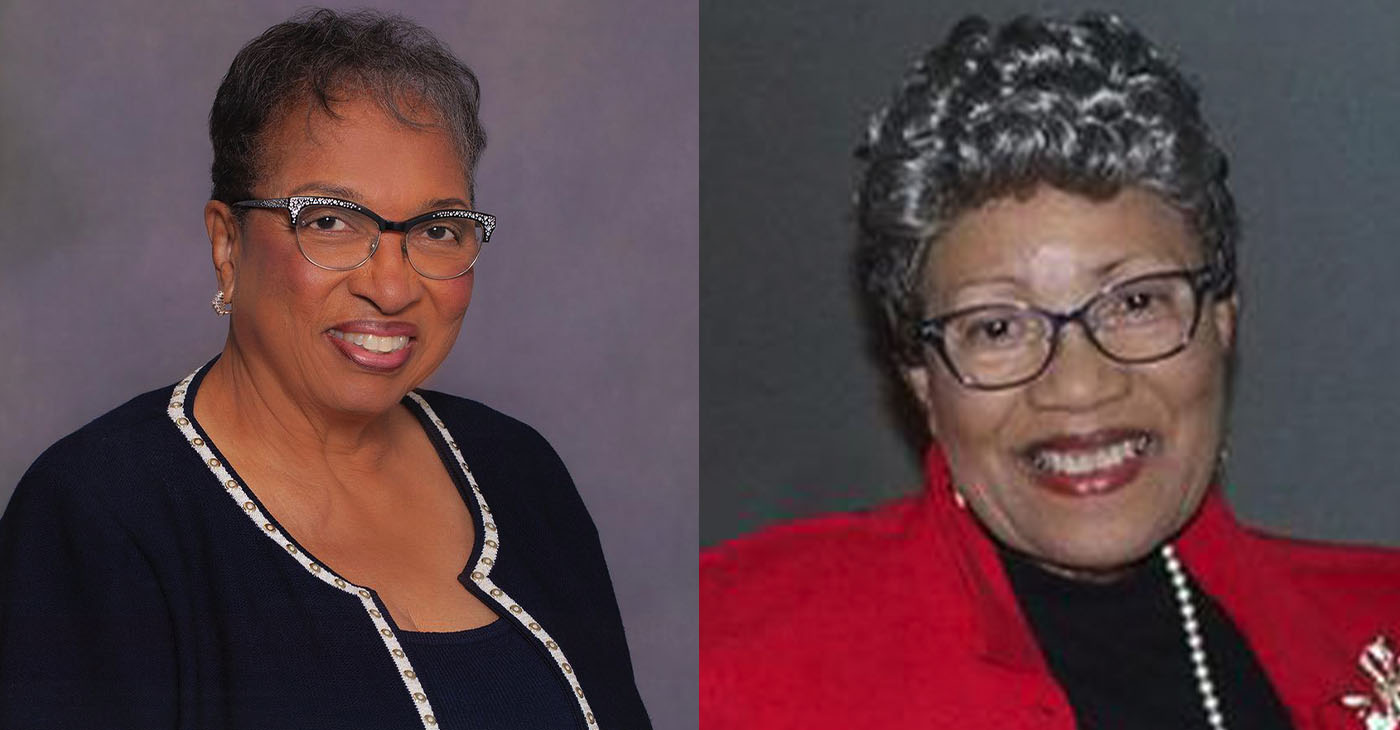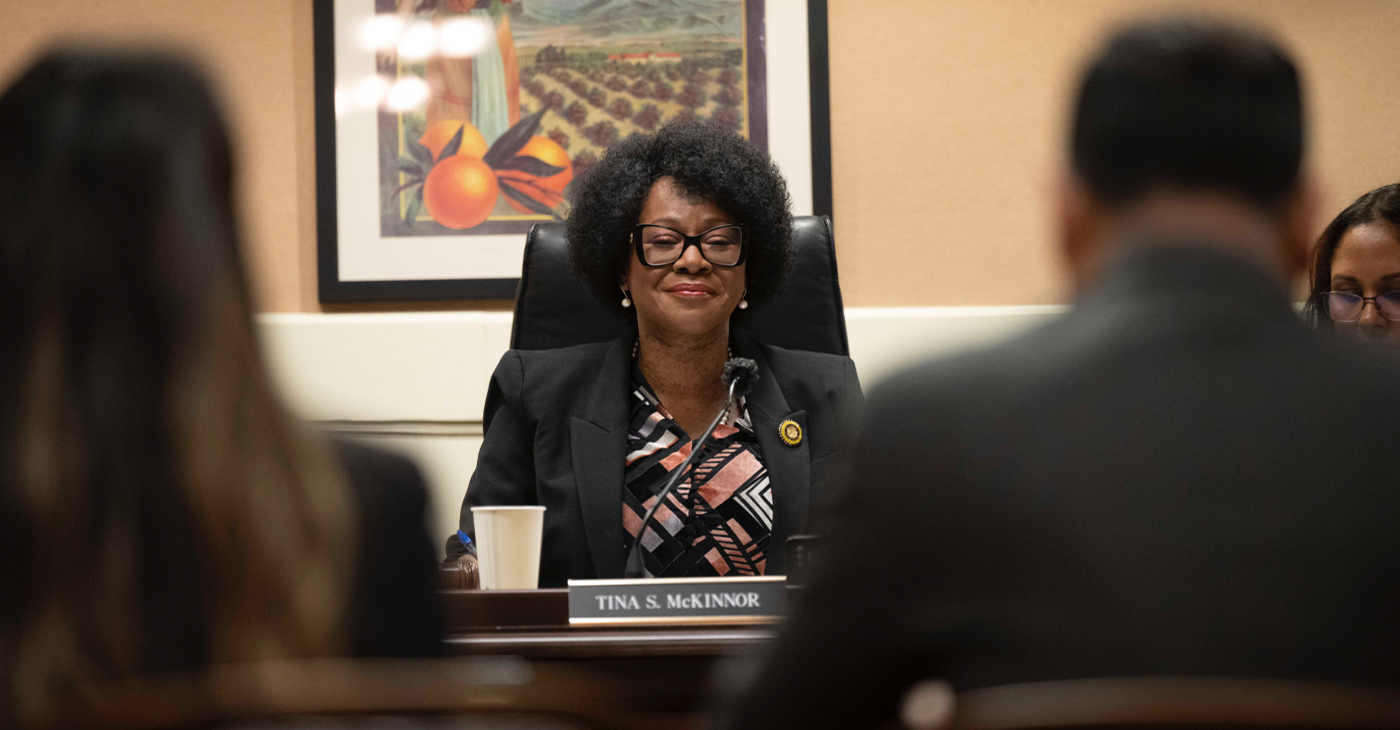California Black Media
Aging Californians: Relaxing the State’s Public Meeting Law Is a Good Thing
During the COVID-19 pandemic, Gov. Gavin Newsom issued an executive order that temporarily suspended some of the requirements of the California’s public meeting law, the Bagley Keene Act. Newsom’s executive order allowed elected boards, commissions and other state “bodies” to hold remote meetings via teleconference without posting each official’s teleconference location (which in some cases were private homes); posting agendas at each location; or making those locations accessible to the public, as required by law.

By Manny Otiko
California Black Media
During the COVID-19 pandemic, Gov. Gavin Newsom issued an executive order that temporarily suspended some of the requirements of the California’s public meeting law, the Bagley Keene Act.
Newsom’s executive order allowed elected boards, commissions and other state “bodies” to hold remote meetings via teleconference without posting each official’s teleconference location (which in some cases were private homes); posting agendas at each location; or making those locations accessible to the public, as required by law.
A bill is currently being considered by the California legislature that would extend some of the changes to the Bagley-Keene Open Meeting Act until Jan. 1, 2026.
Senate Bill (SB) 544, which was amended Aug. 14 and is currently being reviewed by the Assembly Appropriations Committee, was introduced by Sen. John Laird (D-Santa Cruz) in February.
Supporters of the legislation argue that the bill saves taxpayer money by driving down the costs associated with in-person meetings by up to 90%, and that virtual meetings give access to vulnerable populations who may not be able to attend meetings in person.
One of those vulnerable populations is aging Californians.
“For many citizens, this was a way to stay active in the community,” says former Assemblymember Cheryl Brown, who is now the chair of the California Commission on Aging.
“Once we got them trained, they fall in love with it. They become engaged with their government,” said Brown.
“They want more communication, and they don’t want to be isolated,” Brown says referring to the changes SB 544 is proposing. She wants people to have permanent access to public meetings.
During the pandemic, there was record participation in meetings because they were broadcast online and people could access them by teleconference.
However, SB 544 has its share of opponents.
Groups such as the First Amendment Coalition (FAC), the California Newspaper Publishers Association, California Common Cause, The Society of Professional Journalists, and other groups committed to holding government accountable have spoken out against the bill.
They believe that if SB 544 passed, it would lead to more government secrecy and turn state government boards and commissions into “faceless bureaucracies.”
The FAC was one of several civic groups that co-signed a letter critical of SB 544.
“This rewriting would ensure that a state body would never again have to meet in person. This would fundamentally undermine one of the law’s key protections for public access and participation — the guarantee that the press and public can be physically present in the same room as those sitting on the dais and making decisions. Such physical presence has been a constant hallmark of democratic institutions,” according to the letter.
David Loy, legal director at the FAC, told California Black Media (CBM) he is concerned SB 544 would allow more online meetings and it would diminish elected officials’ face-to-face contact with their constituents.
He added that the governor’s executive orders about online meetings were established during the COVID pandemic — and that the health crisis is over.
According to Loy, elected officials decide public policy in these meetings. And he feels that needs to be done in-person.
“Public officials should be meeting face-to-face with the people they serve,” he said.
Sedalia Sanders, former mayor of El Centro who is currently active with her city’s local agency on aging and is active with the California Commission on Aging, disagrees with Loy.
Sanders told CBM since many of the Commission’s meetings are held in Sacramento, she participates through video conferencing.
“I don’t think anything is lost,” she said.
Sanders says participants can still see and interact with their representatives through video cameras.
“For an elected official to participate in a meeting online, the majority of the board members still have to meet in person to form a quorum,” she added.
Although born during World War II, Sanders has embraced modern technology. She has a cell phone and navigates the internet. However, she said that not all senior citizens are as tech savvy as she is.
Many of them don’t know you have to pay for the internet. And this can be a problem, especially if you’re on a fixed income.
Brown says that the bill’s opponents are conflating the issues. Boards and commissions are different than elected leaders voting on public policy matters, and seniors and disabled communities support this bill because it’s about inclusion, not exclusion.
“Seniors don’t want to sit back and just play pickleball,” she said. “They want to have a say in the decisions that affect their lives and remote access allows them to do that.”
Activism
Oakland Post: Week of April 24 – 30, 2024
The printed Weekly Edition of the Oakland Post: Week of April 24 – 30, 2024

To enlarge your view of this issue, use the slider, magnifying glass icon or full page icon in the lower right corner of the browser window. ![]()
Business
Black Business Summit Focuses on Equity, Access and Data
The California African American Chamber of Commerce hosted its second annual “State of the California African American Economy Summit,” with the aim of bolstering Black economic influence through education and fellowship. Held Jan. 24 to Jan. 25 at the Westin Los Angeles Airport Hotel, the convention brought together some of the most influential Black business leaders, policy makers and economic thinkers in the state. The discussions focused on a wide range of economic topics pertinent to California’s African American business community, including policy, government contracts, and equity, and more.

By Solomon O. Smith, California Black Media
The California African American Chamber of Commerce hosted its second annual “State of the California African American Economy Summit,” with the aim of bolstering Black economic influence through education and fellowship.
Held Jan. 24 to Jan. 25 at the Westin Los Angeles Airport Hotel, the convention brought together some of the most influential Black business leaders, policy makers and economic thinkers in the state. The discussions focused on a wide range of economic topics pertinent to California’s African American business community, including policy, government contracts, and equity, and more.
Toks Omishakin, Secretary of the California State Transportation Agency (CALSTA) was a guest at the event. He told attendees about his department’s efforts to increase access for Black business owners.
“One thing I’m taking away from this for sure is we’re going to have to do a better job of connecting through your chambers of all these opportunities of billions of dollars that are coming down the pike. I’m honestly disappointed that people don’t know, so we’ll do better,” said Omishakin.
Lueathel Seawood, the president of the African American Chamber of Commerce of San Joaquin County, expressed frustration with obtaining federal contracts for small businesses, and completing the process. She observed that once a small business was certified as DBE, a Disadvantaged Business Enterprises, there was little help getting to the next step.
Omishakin admitted there is more work to be done to help them complete the process and include them in upcoming projects. However, the high-speed rail system expansion by the California High-Speed Rail Authority has set a goal of 30% participation from small businesses — only 10 percent is set aside for DBE.
The importance of Diversity, Equity and Inclusion (DEI) in economics was reinforced during the “State of the California Economy” talk led by author and economist Julianne Malveaux, and Anthony Asadullah Samad, Executive Director of the Mervyn Dymally African American Political and Economic Institute (MDAAPEI) at California State University, Dominguez Hills.
Assaults on DEI disproportionately affect women of color and Black women, according to Malveaux. When asked what role the loss of DEI might serve in economics, she suggested a more sinister purpose.
“The genesis of all this is anti-blackness. So, your question about how this fits into the economy is economic exclusion, that essentially has been promoted as public policy,” said Malveaux.
The most anticipated speaker at the event was Janice Bryant Howroyd known affectionately to her peers as “JBH.” She is one of the first Black women to run and own a multi-billion-dollar company. Her company ActOne Group, is one of the largest, and most recognized, hiring, staffing and human resources firms in the world. She is the author of “Acting Up” and has a profile on Forbes.
Chairman of the board of directors of the California African American Chamber of Commerce, Timothy Alan Simon, a lawyer and the first Black Appointments Secretary in the Office of the Governor of California, moderated. They discussed the state of Black entrepreneurship in the country and Howroyd gave advice to other business owners.
“We look to inspire and educate,” said Howroyd. “Inspiration is great but when I’ve got people’s attention, I want to teach them something.”
California Black Media
Asm. Tina McKinnor Elected Chair of L.A. Delegation to Legislature
On Jan. 24, the members of the Los Angeles County Delegation (LACD) to the California Legislature elected Assemblymember Tina McKinnor (D-Inglewood) as the group’s chair. McKinnor, who is a member of the California Legislative Black Caucus, will lead the 39-member body, which is comprised of 15 State Senators and 24 State Assemblymembers representing various areas of Los Angeles County.

By California Black Media
On Jan. 24, the members of the Los Angeles County Delegation (LACD) to the California Legislature elected Assemblymember Tina McKinnor (D-Inglewood) as the group’s chair.
McKinnor, who is a member of the California Legislative Black Caucus, will lead the 39-member body, which is comprised of 15 State Senators and 24 State Assemblymembers representing various areas of Los Angeles County.
As LACD chair, McKinnor succeeds Assemblymember Luz Rivas (D-San Fernando Valley).
“I am grateful for the trust legislators from the Los Angeles County Delegation have placed in me to serve as its next Chair,” said McKinnor in a statement.
LACD Vice Chair, Sen. Maria Elena Durazo (D-Los Angeles), said the body, which collectively represents about 10 million people in California’s populous county, is the largest, bi-partisan, and most diverse delegation in the California Legislature.
“Heading into a challenging budget year, the Delegation, and I will be intensely focused on making sure communities throughout Los Angeles County receive the services they need and that we continue our historic investments to address homelessness and the housing affordability crisis in Los Angeles County,” Durazo added.
McKinnor thanked Rivas for her stewardship of the LACD during the last legislative session.
“The Delegation and I are grateful to outgoing Chair, Assemblymember Luz Rivas, for her incredible leadership to the Legislature, the state, and especially the people of Los Angeles County,” said McKinnor.
-

 Activism4 weeks ago
Activism4 weeks agoOakland Post: Week of March 27 – April 2, 2024
-

 #NNPA BlackPress4 weeks ago
#NNPA BlackPress4 weeks agoBeloved Actor and Activist Louis Cameron Gossett Jr. Dies at 87
-

 Community2 weeks ago
Community2 weeks agoFinancial Assistance Bill for Descendants of Enslaved Persons to Help Them Purchase, Own, or Maintain a Home
-

 Activism3 weeks ago
Activism3 weeks agoOakland Post: Week of April 3 – 6, 2024
-

 Business2 weeks ago
Business2 weeks agoV.P. Kamala Harris: Americans With Criminal Records Will Soon Be Eligible for SBA Loans
-

 Activism2 weeks ago
Activism2 weeks agoOakland Post: Week of April 10 – 16, 2024
-

 Community2 weeks ago
Community2 weeks agoAG Bonta Says Oakland School Leaders Should Comply with State Laws to Avoid ‘Disparate Harm’ When Closing or Merging Schools
-

 Community1 week ago
Community1 week agoOakland WNBA Player to be Inducted Into Hall of Fame



















































